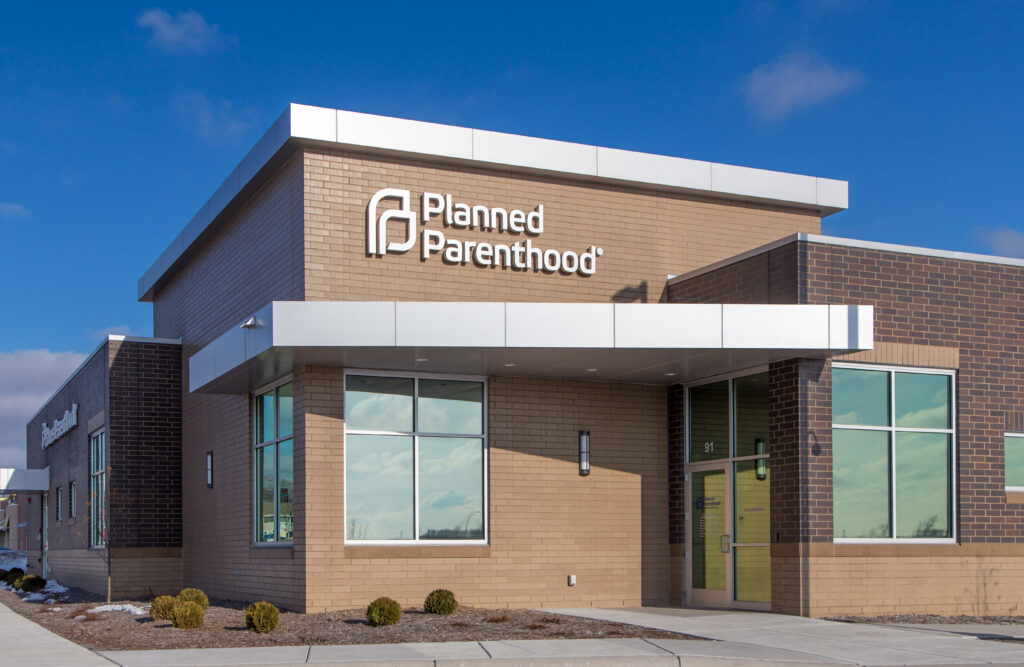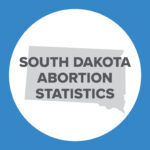Abortion Reporting: Arkansas (2021)
The Arkansas Department of Health released Arkansas’ 2021 abortion report in June 2022, showing that chemical abortions significantly declined in Arkansas in 2021. This is the third state summary from Charlotte Lozier Institute covering calendar year 2021 from states that publish annual reports.
Statistics and Changes in Arkansas Abortions, 2020-2021

The report does not include information on Planned Parenthood’s Arkansas abortion market share.
Abortion Totals and Trends
There were 3,133 abortions reported in Arkansas in 2021, down less than one percent (0.7 percent) from the previous year (Fig. 1). Chemical abortions decreased by 31 percent from 1,725 in 2020 to 1,190 in 2021. However, chemical abortion still makes up 38 percent of the total abortions in the state. The Charlotte Lozier Institute (CLI) estimates that Arkansas’ state abortion rate decreased by two percent in 2021 to 5.4 abortions per 1,000 women ages 15 to 44 (Fig. 2). As of October 2022, 22 states had released 2021 abortion statistics, of which only six reported that abortions had decreased from the previous year.
State Report Summary
In 2021, 88 percent of Arkansas abortions were performed on state residents, while 12 percent were on women from other states. Women from Texas made up the largest group of out-of-state women obtaining abortions in Arkansas, accounting for five percent of the total.
Sixty-one percent of the abortions were performed on women in their twenties, with 31 percent on women ages 20 to 24 and 30 percent on women ages 25 to 29. Twenty-seven percent of Arkansas abortions were obtained by women in their thirties, and two percent were obtained by women in their forties or older. Seven percent of the abortions were performed on girls ages 18 to 19, and three percent were on girls under the age of 18. According to the report, parental consent was required for 102 abortions, including 100 abortions on girls under the age of 18, one abortion on an 18-year-old girl, and one abortion on a woman whose age was not reported. Parental consent was provided in 93 cases, and a judicial waiver to the parental consent requirement was obtained in 20 cases.
More than half the abortions (56 percent) were performed on black women. Thirty-four percent were performed on white women, and nine percent were performed on women of other races. The Charlotte Lozier Institute estimates that the black abortion rate was 16.9 abortions per 1,000 women ages 15 to 44, over seven times the white abortion rate of 2.4. Ninety percent of Arkansas abortions were performed on non-Hispanic women, and seven percent were on Hispanic women. Three percent of abortions were on women of unknown ethnicity.
Ninety percent of the abortions reported in Arkansas were on unmarried women, 10 percent were on married women and less than one percent (0.9 percent) were on women of unknown marital status. Sixty-four percent of Arkansas abortions were performed on women with no previous abortions. Just over a fifth of the abortions (21 percent) were performed on women with one prior abortion, and 15 percent on women with two or more previous abortions. A tick under one-third of the abortions (32 percent) were obtained by women with no prior live births, while a quarter of the abortions were on women with one live birth and 44 percent on women with more than one.
Unlike the previous year, suction and curettage was the most frequently used abortion procedure. Forty-nine percent of the abortions reported in Arkansas were suction abortions. Thirty-eight percent were chemical abortions, and 13 percent were performed using dilation and evacuation. Thirty-nine percent of the abortions occurred at six weeks post-fertilization or earlier, with 10 percent performed before five weeks and 29 percent performed between five and six weeks post-fertilization. Twenty-eight percent were performed between seven and eight weeks. Sixteen percent were performed between nine and 10 weeks, and six percent were performed between 11 and 12 weeks post-fertilization. Three percent were performed between 13 and 14 weeks, and five percent were performed between 15 and 17 weeks. Two percent occurred between 18 and 19 weeks post-fertilization.
Arkansas also publishes a report on its informed consent process; because the data is collected separately from the abortion data, it is not directly comparable to the abortion report. In 2021, there were 3,862 women who received medical information related the abortion, and the same number of women who received non-medical information. Sixty-one women who were seeking abortions at 20 weeks of gestation or later were provided with information on fetal pain.
Abortion Complications in Arkansas
2021 marked Arkansas’ second full year of data after a new complication reporting law went into effect.1 Arkansas publishes a separate complications report. Thirty-one complications were reported in 2021, of which 23 (74 percent of the total complications) resulted from chemical abortions despite the fact that chemical abortions made up 38 percent of the total abortions performed in Arkansas in 2021. Five complications resulted from dilation and evacuation abortions, and three complications resulted from other, unspecified methods. There were 15 incomplete abortions, four cervical lacerations, and 11 other unspecified complications. One complication was not described. No babies were reported to have survived abortions in 2021.
Legislative Changes
In June 2022, Arkansas’ 2019 trigger law (SB149 or Act 180) went into effect after the Arkansas Attorney General certified that the Supreme Court of the United Sates overturned Roe v. Wade on June 24, 2022. This law protects unborn babies from abortion in all cases except to save the life of the mother in a medical emergency.
In 2021, Arkansas Governor Asa Hutchinson (R) signed a series of pro-life bills into law. The ones that relate to information in the Arkansas annual abortion reports are summarized below.
- H1572 (Act 560)- This law requires that a chemical abortion may not occur without a woman’s informed consent and that the abortion provider must provide information 72 hours before the abortion, except in the case of a medical emergency. Information to be given to the woman includes the probable gestational age of the unborn child, a description of the drug regimen, risks and complications associated with the procedure, and information on abortion pill reversal. Chemical abortions must be reported to the Arkansas Department of Health. This law went into effect in July 2021.
- H1589 (Act 561)- This law prohibits the taxpayer funding of abortions. This law took effect in July of 2021.
- H1402 (Act 562)- This law requires that only physicians may administer abortion-inducing drugs and that physicians must provide women with an in-person examination before prescribing, administering or dispensing an abortion-inducing drug. This law went into effect in July 2021.
- S463 (Act 787)- This law amended abortion reporting requirements by requiring that the state send abortion data to the CDC. It also requires that abortion providers send the state health department the number of abortions performed to save the life of the mother and the number of abortions performed because of rape or incest. This law went into effect in August 2021.
- S388 (Act 949)- This law prohibits hospitals from performing abortions except to save the life of the mother and it requires any facility that performs abortions to be licensed as an abortion facility by the Arkansas Department of Health. This law went into effect in August 2021.
State Ranking
In 2016, CLI evaluated abortion reporting across the 50 states, New York City, and the District of Columbia, and Arkansas’ reporting was ranked at 11th best. To improve its reporting, Arkansas could report the number of abortions performed at each abortion facility in the state. Additionally, Arkansas could provide more information on its parental consent process and report why parental consent was or was not required for girls seeking abortions in the state.


- Statistics on abortion complications reported here represent a minimal number of deaths and complications.
- Rates were calculated by CLI using the following formula: (total number of abortions performed in Arkansas ÷ number of resident women ages 15-44) x 1,000. Rates may differ slightly from previous CLI articles due to revised population estimates. Population estimates were obtained from CDC WONDER. Estimates for 2005-2009 are intercensal estimates of the July 1 resident population. Estimates for 2010-2019 are Vintage 2020 postcensal estimates of the July 1 resident population. Estimates for 2020-2021 are Vintage 2021 postcensal estimates of the July 1 resident population. Estimates were produced by the U.S. Census Bureau and the National Center for Health Statistics.



























